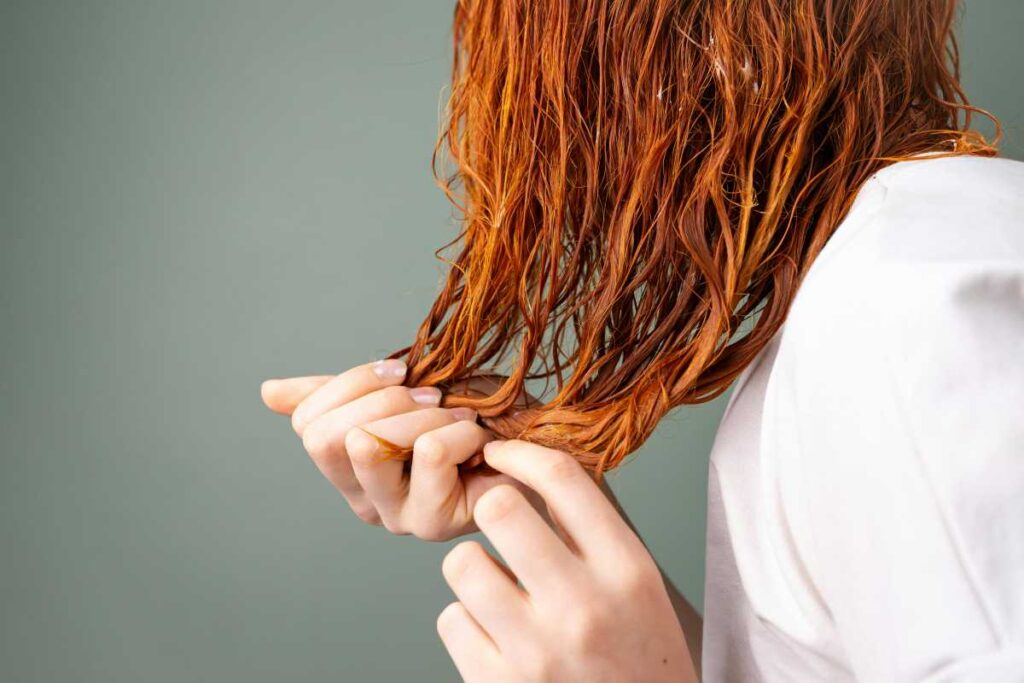Silicones are a popular ingredient in many hair care products, from shampoos and conditioners to styling products. They are used for their smoothening and conditioning properties, but there has been ongoing debate about whether silicones are beneficial or harmful for your hair in the long run. In this guide, we will explore the advantages and disadvantages of silicones in hair care to help you understand how they affect your hair and whether you should be cautious about using them.
1. What Are Silicones?
Silicones are synthetic compounds derived from silica, a natural compound found in sand. They are used in hair care products to provide smoothness, shine, and manageability. Some common types of silicones found in hair products include:
- Dimethicone
- Cyclopentasiloxane
- Amodimethicone
- Phenyl Trimethicone
- Trimethylsiloxysilicate
These ingredients are used because they form a protective layer around the hair, offering various benefits like frizz control and shine.
2. Advantages of Silicones for Hair
2.1. Adds Shine and Smoothness
One of the most significant advantages of silicones in hair care is their ability to make the hair appear shiny and smooth. Silicones coat the hair shaft, reflecting light and creating a glossy finish.
- Why it helps: This protective layer can make your hair look healthier, particularly if you struggle with frizz or dull hair.
2.2. Tames Frizz and Flyaways
Silicones help seal the hair cuticle, which prevents moisture loss and smooths out frizz and flyaways. This is especially beneficial for those with curly, wavy, or frizzy hair.
- Why it helps: By preventing moisture from escaping, silicones help your hair stay sleek and frizz-free, even in humid environments.
2.3. Heat Protection
Silicones create a barrier that helps protect your hair from the damaging effects of heat styling tools like blow dryers, flat irons, and curling irons.
- Why it helps: The silicone layer acts as a shield, minimizing damage from high temperatures and keeping the hair looking healthier over time.
2.4. Improves Manageability
Silicones can make hair more manageable by reducing tangling and providing slip during styling. This helps reduce breakage when combing or brushing your hair.
- Why it helps: Hair that’s easier to detangle leads to less damage from combing and brushing, especially for those with long or textured hair.
3. Disadvantages of Silicones for Hair

While silicones provide instant cosmetic benefits, there are potential downsides when used over time.
3.1. Build-Up on the Hair
One of the most significant concerns with silicones is that they can accumulate on the hair over time, especially if you don’t regularly cleanse your hair with a clarifying shampoo. The build-up can make your hair feel heavy, greasy, or weighed down.
- Why it’s a problem: Silicones don’t dissolve easily in water, which means they stay on the hair even after several washes, causing residue to build up on the strands. This can block moisture from entering the hair and leave it feeling lifeless.
3.2. Can Lead to Dryness
While silicones provide a smooth and shiny appearance, they don’t necessarily nourish the hair. Since they create a barrier around the hair shaft, they can prevent the natural oils from your scalp from properly moisturizing the hair.
- Why it’s a problem: This can lead to dryness and dehydration over time, particularly for those with naturally dry or curly hair.
3.3. Can Weigh Down Fine Hair
For individuals with fine or thin hair, silicones can be too heavy. The layer they form can weigh down the hair, making it look limp and lifeless.
- Why it’s a problem: Silicones can make fine hair appear flat and greasy, as the products may be too heavy for delicate strands.
3.4. Difficult to Remove Without Clarifying Shampoo
To remove silicone build-up, you may need to use a clarifying shampoo, which can strip the hair of its natural oils. Frequent use of clarifying shampoos can lead to dryness and scalp irritation if not followed by deep conditioning treatments.
- Why it’s a problem: The need for harsher cleansers to remove silicone build-up may cause further damage to the hair if not managed properly.
4. How to Avoid Silicone Build-Up
If you love the benefits of silicones but want to avoid the downsides, here are a few tips:
4.1. Use Products with Water-Soluble Silicones
Some silicones, like PEG-12 Dimethicone, are water-soluble and can be easily washed out with regular shampoo. These types of silicones are less likely to build up on the hair.
4.2. Use Clarifying Shampoos Sparingly
To remove silicone build-up, use a clarifying shampoo once a week or as needed. However, don’t use it too frequently, as it can strip your hair of its natural oils and lead to dryness.
4.3. Look for Sulfate-Free and Silicone-Free Products
If you prefer to avoid silicones altogether, look for shampoos and conditioners labeled as silicone-free. These products can still hydrate and smooth your hair without leaving behind a heavy coating.
5. Conclusion: Are Silicones Bad for Your Hair?
Silicones are neither inherently good nor bad for your hair. They provide several immediate cosmetic benefits, such as smoothing, adding shine, and controlling frizz, but they can also lead to build-up and dryness if used excessively.
For those with thick, curly, or frizzy hair, silicones can be a lifesaver, providing much-needed moisture sealing and frizz control. However, individuals with fine or thin hair should be cautious, as silicones can weigh their hair down and cause build-up.
To strike the right balance, choose water-soluble silicones, avoid overuse, and consider clarifying treatments as part of your hair care routine. Ultimately, whether silicones are right for you depends on your hair type and how you manage their use.

